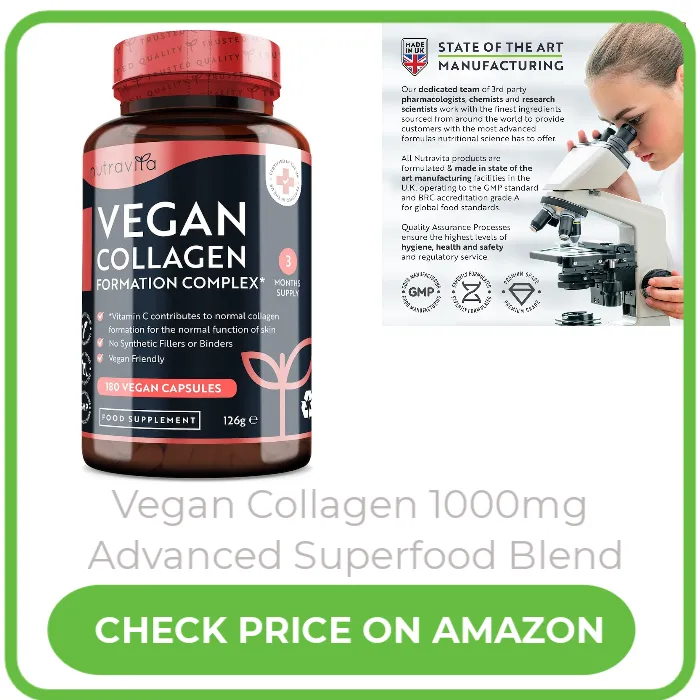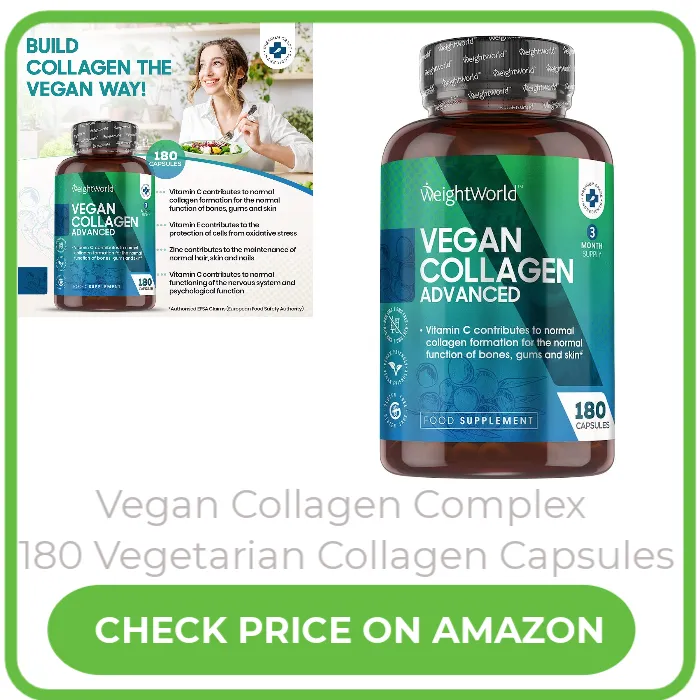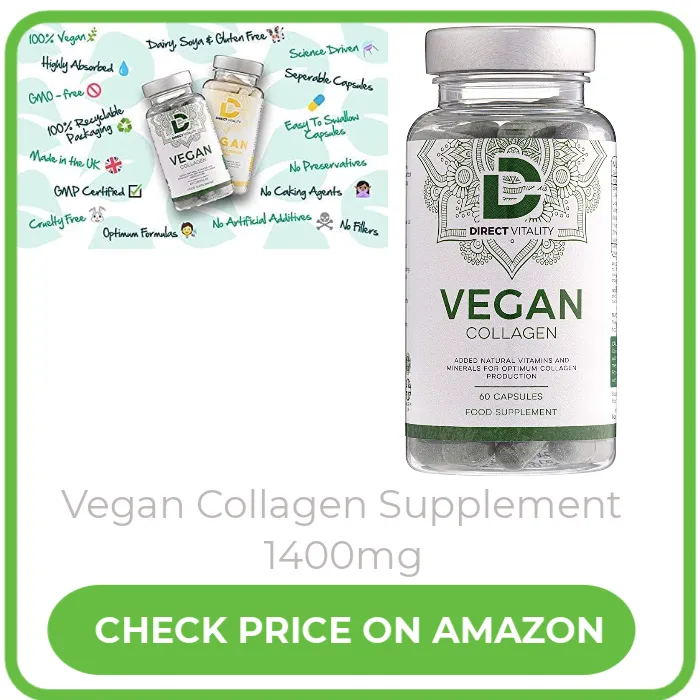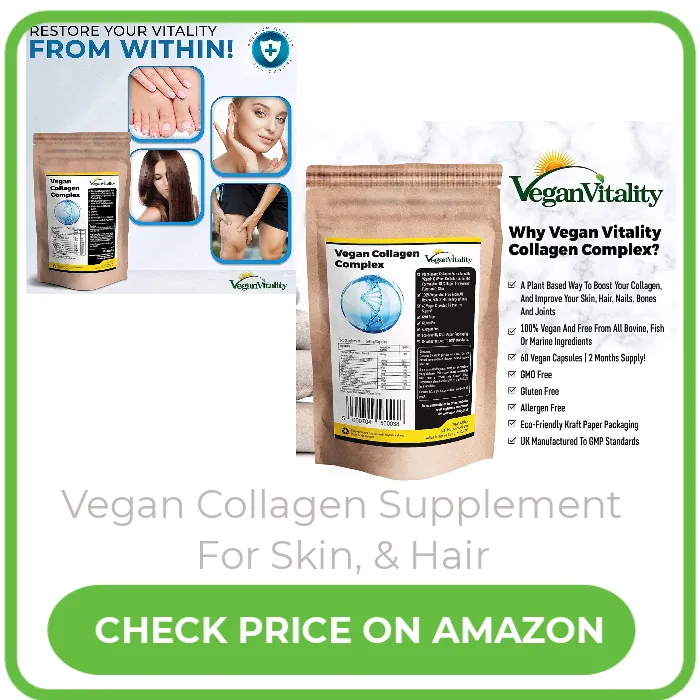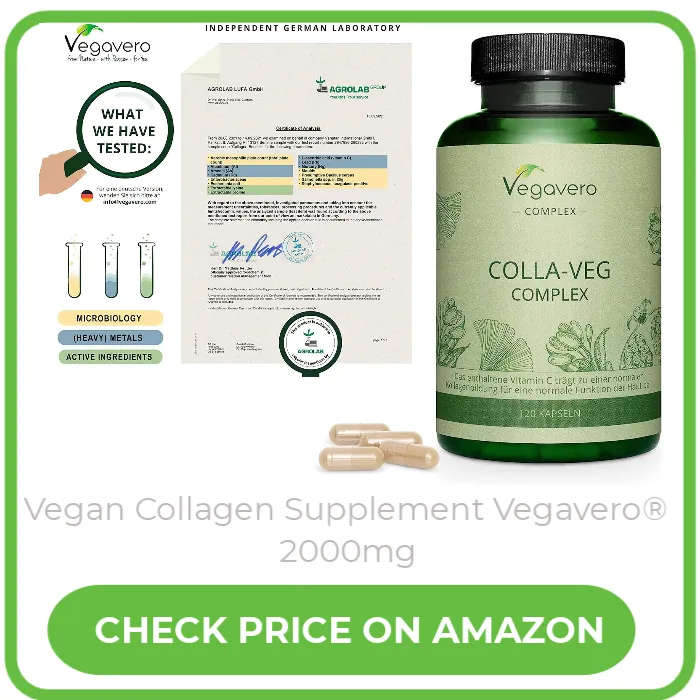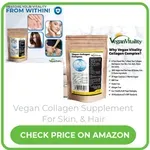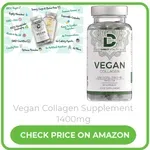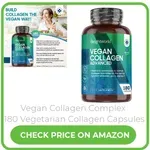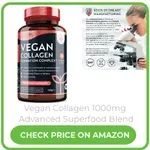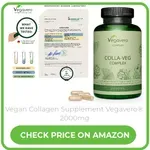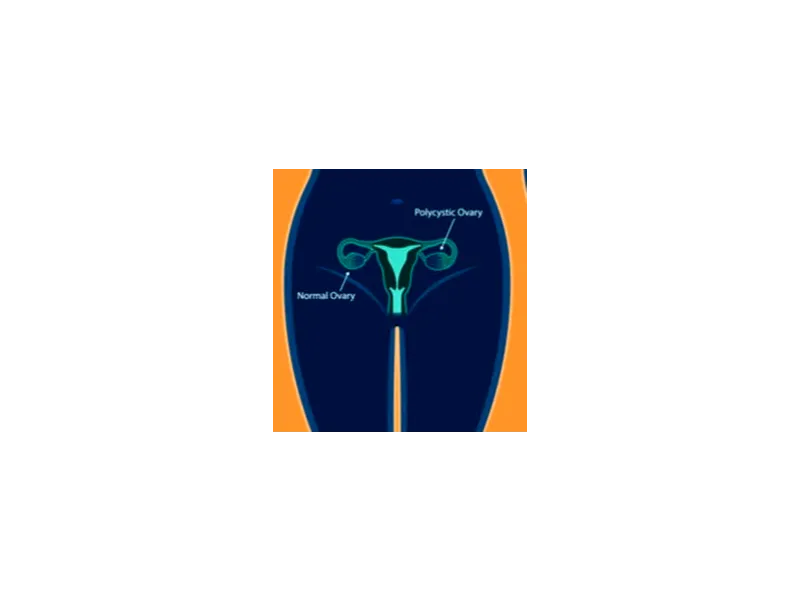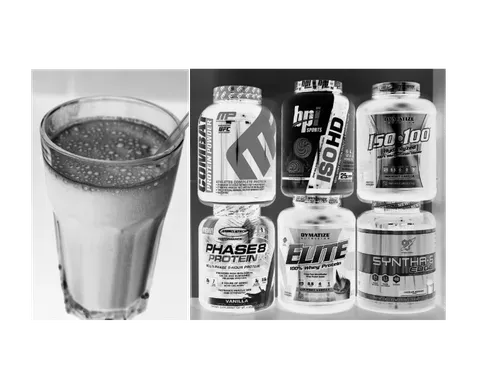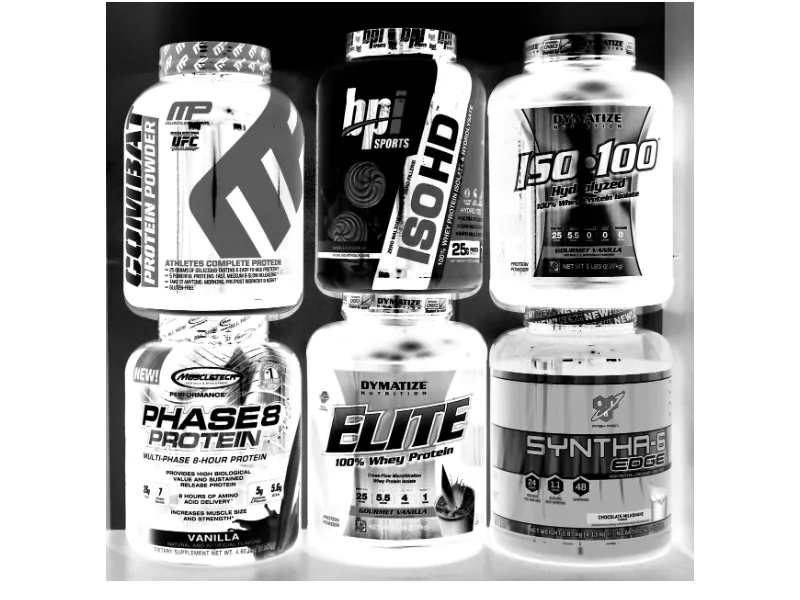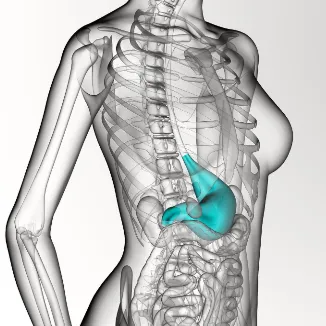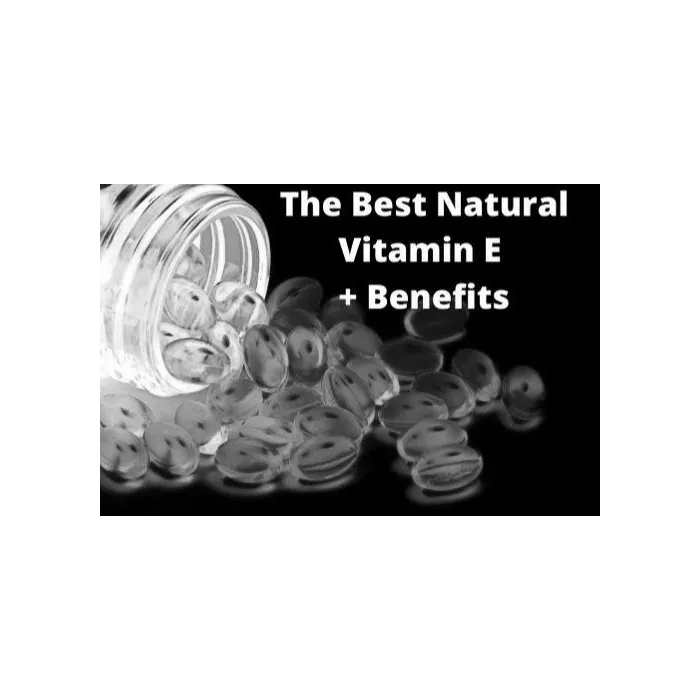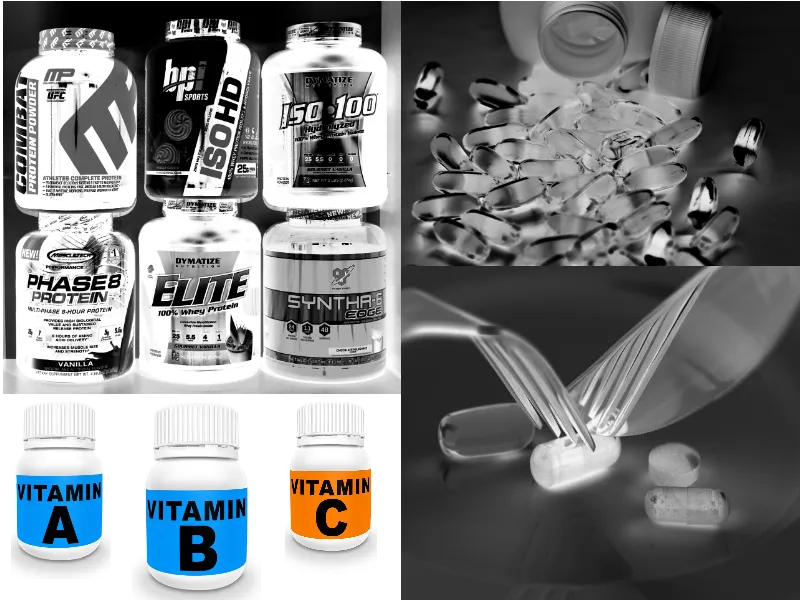Vegan Collagen
Best Vegan Collagen
The first and foremost thing to know when discussing the benefits of vegan collagen is that it has zero animal products. This means that there are no fish, meat, eggs, or dairy involved. What you’re getting instead is a natural substance made from plants.
Vegan collagen can help you to build strong bones. It also boosts your immune system, promotes wound healing, and reduces inflammation. In addition, this protein makes your skin look healthier. And, finally, it increases the longevity of your body by slowing down the aging process.
In terms of what you need to do in order to get your hands on some of the best vegan collagen supplements, all you have to do is to shop around. There are many stores out there that sell this amazing product. However, we highly recommend checking out the website below for more information.
These Top 5 make our Top Selection List:
How we choose:
We've read through & researched countless reviews on Amazon and other Authoritative Sources and Researched Data to find some of the best of the best Vegan Collagen supplements for immune support, muscle strength, muscle recovery, athletic endurance and sleep.
Why Nutravita Vegan Collagen
Made Our Best of The Best Top 5 & Why we love it
It is helpful & reassuring to know
Why WeightWorld Vegan Collagen Complex
Made Our Best of The Best Top 5 & Why we love it
It is helpful & reassuring to know
Why D Direct Vitality Vegan Collagen
Made Our Best of The Best Top 5 & Why we love it
It is helpful & reassuring to know
Why Vegan Vitality Vegan Collagen
Made Our Best of The Best Top 5 & Why we love it
It is helpful & reassuring to know
Why Vegavero Vegan Collagen
Made Our Best of The Best Top 5 & Why we love it
It is helpful & reassuring to know
Knowledge Base:
# Vegan
# Vegan Collagen
# Collagen Supplement
# Vegan Collagen Supplement
# Vegan Collagen in 2022 and 2023
# Booster
# Best Vegan Collagen Supplements
# Vegan Collagen Booster
# 6 Best
# 10 Best
# Plant-Based
# Collagen Powder
# Plant-Based Collagen
# 7 Best Vegan Collagen
# Collagen Products
# Supplements for Healthy
# Healthy Skin
# Plant-Based Collagen Powder
Vegan
Collagen
Collagen Supplement
Vegan Collagen Supplement
Collagen Booster
Vegan Collagen Booster
Best Vegan Collagen Supplements
Plant Collagen
Plant-Based
Collagen Builder
Collagen Boost
Collagen Support
Vegan Collagen-Boosting
Vegan Collagen-Boosting Powder
Aloe Gorgeous Vegan Collagen-Boosting Powder
Collagen Powder
Plant-Based Collagen
Peptide
Skin Health
10 Best
Vegan Collagen Boost
Plant-Based Collagen Powder
Organic Collagen
Rae Vegan Collagen Boost
Vegan Collagen Boost Powder
Animal Collagen
Plant Based Collagen
Collagen Building
1. What Is Collagen?
Collagen is an important protein in the body. It’s found mainly in connective tissues like tendons, ligaments, cartilage, bones, skin, muscles, blood vessels, and eyes.
It helps to keep your joints flexible, and it also keeps your hair strong and healthy. It’s a major component of your bone marrow.
Collagen is used to help build new tissue, heal wounds, repair broken bones, and maintain the health of your heart. But, if you don’t get enough, you can develop diseases such as osteoporosis, arthritis, diabetes, cancer, or cardiovascular disease.
So, how do you choose a vegan collagen supplement? Well, there are many companies that make them, but not all of them use animal products. So, you need to be careful when choosing one.
There are different types of supplements available. You should look for ones made from vegetable sources since they’re more natural.
You should also make sure that the company is reputable. You should ask around and find out about their reputation before you buy. If you have any concerns, you should talk to the people who sell them so that you can avoid any problems.
2. Benefits of Adding Vegan Collagen Into Your Diet
If you want to get the best results when using collagen, you need to choose the right kind for yourself. There are two types of collagens, animal-based and plant-based. Animal-based collagens come from animals like cows, pigs, sheep, goats, and fish.
Plant-based collagens come from plants, such as wheat grass. Plant-based collagens are more easily absorbed by the body. They also have fewer side effects than animal-based collagens. However, you should still make sure that you use a quality product.
There are many benefits to taking plant-based collagens. These include increased energy levels, better digestion, healthier skin, stronger nails and hair, and improved joint health. But the most important benefit is that it helps you to lose weight. It’s been shown that people who take plant-based collagens tend to have lower cholesterol levels and blood sugar levels.
You don’t have to be a vegan or vegetarian to enjoy the benefits of collagen supplements. There are a number of different plant-based collagens on the market today. Some are more effective than others. But whether you’re looking for a vegan collagen supplement or not, here are the top four types of plant-based collagen to consider: Whey protein is the most common type of plant-based collagen. It’s an excellent choice if you’re looking to build muscle.
You can find a number of different products online. Some are sold in stores, while others are only available online. So you need to do some research before you buy your own supply.
3. Why Choose Vegan Collagen?
Collagen is one of the most important proteins in our bodies. However, we don’t get enough of it. So, it is essential to supplement our diets with it. But, what is the best way to consume it?
There are different types of animal-based collagen supplements available. Some are made using fish scales and bones. Others use pig skin. And others still use cow hooves.
However, if you want to be healthy, you should avoid consuming these products. They can cause allergies, digestive problems, or even worse health issues.
The only type of collagen that is completely free from animal byproducts is plant-based. That is because plants cannot move around like animals do. Therefore, they lack the ability to produce collagen.
This is why it is important to choose a collagen supplement that is made with plant-based collagen. What Does It Do? There are two main functions that collagen plays in the body. Collagen is found in connective tissue. Connective tissue is made up of cells that hold other cells together. It is a very strong and flexible type of tissue. Collagen also plays a role in maintaining healthy joints. This is because it helps to keep the bones and cartilage in good shape. How Does It Work?
So, when choosing a vegan collagen product, make sure that it does not contain any animal byproducts. This will ensure that you are getting the best possible results.
If you’re interested in learning more about how to get the most out of your vegan collagen supplement, then you need to read this article. It will explain everything that you need to know about it.
4. Vegan Collagen Brands to Consider
Vegan products are becoming more popular every day. This is mainly due to the fact that they are healthier and better for our bodies than traditional animal-based foods.
There are many different types of vegan proteins. These include dairy, soy, hemp, pea protein, rice, wheat, almond, and coconut.
However, if you want to make the switch to a vegan diet, then it’s important that you choose the right type of product. For example, you don't want to use a product made with milk. Instead, you should use a plant-based alternative.
So, what are the best vegan proteins? Well, there is a wide variety of options. However, we will focus on four specific ones here. So, let's take a look at them now.
5. How Much Does It Cost?
Choosing vegan collagen is one of the best ways to improve your skin. However, you don’t want to spend a lot of money on this product. So, you need to make sure that you choose a reputable brand. When you are choosing a brand, you should pay attention to reviews. You can use websites like Amazon to help you find out more information.
When you are looking for the right price, you should also take into consideration the quality of the product. For example, if you find a cheaper product, but it doesn’t work as well, then you might end up wasting your money.
So, when you’re shopping around, you should always ask yourself the following questions. What is the difference between the products? Is the packaging recyclable? Do they contain animal ingredients? And so on. If the answer to these questions is no, then you should avoid them.
You should also look at the company behind the product. You should make sure that the company uses only organic and natural methods to produce their products. Also, you should make sure that they are transparent about what happens in their factories.
Collagen is one of the most popular ingredients in skin care because it helps to keep your skin hydrated and healthy. However, some people choose to avoid using animal-derived collagens due to their controversial nature.
The main reason why they opt to go vegan when choosing a collagen supplement is that they feel better knowing that the product has been tested on animals. Some companies also state that their products are made from plant based proteins. But how can you be sure what exactly is being used to manufacture this type of protein?
Fortunately, we've done all the hard work for you. In this post, we're going to show you a list of the best vegan collagen products available today!
The first step would be figuring out what you want from your collagen.
Veganism is all about eating natural foods and avoiding animal byproducts. Many people believe that vegan diets are healthier than non-vegetarian ones, but that isn’t always true. In fact, there has been a recent trend towards vegetarianism in many countries around the world. For example, Japan leads the way with over half of its population being vegetarian.
While most vegetarians avoid meat, they still consume dairy products. However, this doesn’t mean that these dairy products need to be from animals! There is an alternative to milk and other dairy products called ‘collagen’. This is a protein found in connective tissues and bones. The best thing about using collagen as a replacement for dairy products is that it tastes great, feels good on the stomach, and contains lots of essential nutrients.
FAQ
What's the best vegan collagen?
Collagen is the name given to a group of proteins found in human and other animal tissue. Collagen is a vital component of connective tissue. Connective tissue helps to hold organs and muscles together and provides strength and resilience to our bodies.
In order for collagen to stay healthy, you need to consume adequate amounts.
Although this can be tricky, it is not impossible. Animal protein contains a large amount of collagen, but plants are also rich in this protein. The main difference is that the type of plant protein found in vegetables and fruit is far more nutritious than the type in animal flesh.
Plant-based foods contain collagen, amino acids, vitamins, minerals, fiber and a range of other nutrients. These foods, along with healthy eating habits, are essential for promoting good health and fighting disease.
If you are new to veganism, you may be interested in learning more about collagen supplements.
Is vegan collagen as good as animal collagen?
Vegans do not eat meat, fish or eggs. They may also use products such as butter, milk and cheese which come from dairy animals. However, they are able to live in a more natural, healthy way by avoiding animal-derived food products. Some of these foods include gelatin, gelatin capsules and other similar products.
In the UK, vegan gelatin is not available but there are several vegan supplements and nutritional products which are rich in collagen. One example of this is the Nutramigen brand.
Nutramigen® is made from pure collagen and amino acids found in the human body. It has a high content of lysine and hydroxyproline, both of which are essential for normal growth and repair of tissues. It also contains the amino acid L-glutamine.
Collagen is a protein found in animal connective tissue such as skin, ligaments, tendons, bones, cartilage, blood vessels, muscles and blood cells. Collagen is present throughout the body and helps to build new cells, maintain a firm, flexible body and help wounds heal.
Collagen supports bone strength, heart function and healthy joints and muscles. It is also part of the skin, eyes, hair and nails.
Collagen is an essential building block for our bodies and has many functions. It helps to keep your bones strong and flexible, gives your eyes their clear appearance, allows you to sweat and helps your nails grow. It is also necessary for the structure of blood vessels, ligaments, tendons, cartilage, muscles and skin.
What is the difference between vegan and animal-derived gelatins?
Vegans are able to live in a more natural, healthy way by avoiding animal-derived food products. This includes gelatins from dairy and non-dairy origins.
The differences between vegan and animal-derived gelatins are mainly the source of the gelatins and whether the gelatins are derived from bovine, porcine or equine sources.
Animal Gelatins
Animal gelatins are derived from the collagen found in animal connective tissue, such as skin, ligaments, tendons, bones, cartilage, blood vessels, muscles and blood cells.
Gelatins can be sourced from animals of the following species:
• Bovine
• Porcine
• Equine
The main ingredient of all types of gelatins is collagen.
Vegan Gelatin
Vegan gelatins are from vegetable origin, such as:
• Wheat
• Soy
• Rice
• Algae
• Hylobates intermedius
• Chlorella
• Macrocystis pyrifera
• Spirulina
• Camellia oleifera
The main ingredient of all types of gelatins is collagen.
What is the best vegan collagen for skin?
Collagen is a protein found in connective tissue. Skin contains a layer of fibroblasts and collagen, which hold it together and help it retain moisture. Collagen can improve the appearance of wrinkles, stretch marks and scars.
The best collagen available comes from animals, and this can lead to ethical concerns. Some people opt for products derived from animal sources. But these products lack the biological activity of the original animal source collagen.
If you are looking for a non-animal sourced product, there are lots of other options available. Most of these come from fish, as they contain the same types of protein that we find in mammalian collagen. Collagen peptides can also be made from dairy products, including milk and yoghurt.
One popular brand of non-animal sourced collagen is Eylure. This is a 100% plant-based collagen supplement, which means it contains no animal products. It is available in a wide range of concentrations and strengths.
Eylure is made by a pharmaceutical company and is suitable for adults, and older children who are taking medication. It is made from food-grade ingredients and can be taken with food or on an empty stomach.
In general, people who are vegetarian, vegan or eat a diet which excludes meat products, may need to take supplements containing collagen to supplement the body’s own supply.
As a rule of thumb, the greater your age, the greater the requirement. Younger people usually have a lower requirement than older people. But, in general, anyone under the age of 30 should consider taking a daily supplement of 2g of bovine collagen.
For older adults, the daily dose is often reduced to 1g, but it is advisable to discuss your requirements with a pharmacist.
People who are pregnant should consult their GP before taking collagen.
Is vegan collagen as effective as animal collagen?
Yes, but it is much easier to absorb and use.
Animal collagen is made by taking skin cells from animals, treating them with enzymes to separate them from fat and connective tissues, then extracting the gelatin and making it into tablets or capsules. The process is long and complicated.
Vegan collagen is made using yeast or fungi, and is therefore a far quicker process. It is made by extracting yeast or fungi from plants and growing it until it reaches a point where the proteins have become rich and sticky. This process does not involve animal parts and is therefore much easier and less expensive.
While both types of collagen are widely used, they are not the same. Animal collagen is a type of collagen found in bones, teeth, blood vessels, ligaments, cartilage, skin, hair and nails. Vegan collagen is a type of collagen found in bones, skin, muscles and joints.
Vegan collagen is widely used in cosmetics, skincare products and other products for beauty and body. It is also being used as a dietary supplement in the form of powders, creams and capsules.
Question:Is collagen from cowhide as effective as human collagen?
It is similar in many ways.
Animal collagen is made by taking skin cells from cows, pigs, goats and other large mammals. They are treated with enzymes to separate the cells from the fatty tissue and connective tissue. This is known as demineralisation.
The gelatin is then mixed with alcohol, and the fat and protein are separated out. This is known as precipitation. The gelatin is then dried, ground, purified and sterilised before it is used in the form of tablets or capsules.
Human collagen is made in a very similar way, but is extracted from the collagen within the skin and joints of human beings. It is obtained through a process called demineralisation. The gelatine is then mixed with alcohol and the fat is separated. This is known as precipitation. It is then filtered, purified and sterilised before it is used in the form of tablets and capsules.
Both collagen sources are widely used in skincare products and in the cosmetic industry. However, they are not the same.
Calf skin collagen is obtained from calves, whereas human skin collagen is obtained from humans.
Question:Which is the most efficient type of collagen for skincare?
Collagen from cowhide is the most commonly used type. It is more effective than human collagen.
Question:What type of collagen is suitable for anti-aging?
It depends on the individual. For instance, if you are looking for a moisturising, anti-wrinkle, anti-aging product, then collagen from cowhide may be the best choice.
If you are looking for a more intense and deeper wrinkle reduction, then human collagen may be better. If you are looking for skin that is smoother, younger looking and firmer, then collagen from human placenta may be the best choice.
If you are looking for skin that is more hydrated and radiant, then collagen from fish may be the best choice.
There are a number of factors to consider when choosing the type of collagen. Some are listed below:
• Skin type – for instance, if you have sensitive skin, you should look for a product that contains low concentrations of animal products. In contrast, if your skin tends to be thick, you should look for a product that contains a higher concentration of animal proteins.
• Moisturising vs anti-aging – it is more important to choose a product that contains a high concentration of skin-firming and hydrating ingredients rather than an anti-aging formula.
• Skincare needs – For example, if you have oily skin, you should look for a formula that contains a lower concentration of anti-oxidants and a higher concentration of skin-firming ingredients.
• Your lifestyle – for example, if you lead an active lifestyle, you should look for a formula that contains a higher concentration of skin-firming and hydrating ingredients and a lower concentration of skin-conditioning ingredients.
Do vegans have less collagen?
There are many myths and legends about food. One of the most common ones isn't true.
There is no scientific evidence that vegans have less collagen. Collagen is the main component of connective tissue which is essential for healthy joints, skin, hair, nails and blood vessels.
Vegans avoid eating animal products, but the diet is not restricted to just meat, eggs and dairy. Rather, it refers to the total removal of animal foods from the diet. A vegetarian diet excludes all animal foods, including milk, cheese, meat, fish, eggs, honey, butter, and gelatin.
Studies have looked at the role of collagen in the body, and it is known that people who follow a vegan diet tend to have lower levels of collagen than those who eat a mixed diet. However, the studies suggest that this is due to dietary choices rather than the fact that a person has never eaten animal foods.
Research has suggested that a diet high in refined carbohydrates (white bread, rice, pasta, white potatoes, cookies) leads to low levels of collagen, while a diet high in proteins (meat, fish, eggs, cheese, yogurt, beans) and complex carbohydrates (whole grains, oats, fruits, vegetables) increases the levels of collagen.
Other factors such as age, genetics and general health can affect the amount of collagen in the body.
There have been some claims made regarding the consumption of vegan drinks and supplements to promote the building of collagen. These claims have not been tested in scientific studies and are not recommended.
Are vegan collagen alternatives better?
Yes.
If you are considering giving up meat or dairy products and want to try to stick to a healthy diet, you’ll need to find alternative sources of protein. Fortunately, the market is full of products that offer a vegetarian alternative to meat, including collagen.
Collagen is the main component of connective tissue, which is found in animal bones, skin, ligaments, muscles, blood vessels and internal organs such as the kidneys, heart and lungs. It is also the main component of bone and tendon. In addition to these functions, collagen is responsible for maintaining the elasticity of joints and ligaments, as well as helping to maintain muscle tone and strength.
There are two types of collagen: soluble and insoluble. Soluble collagen is found in the blood plasma and is easily absorbed by the body. Insoluble collagen is more stable than soluble and can be found in many foods such as grains, beans, vegetables, dairy products and seeds. Collagen comes in both natural and synthetic forms. Natural collagen is taken from animal sources and processed with enzymes, while synthetic collagen is made in a lab.
Many people who have been vegan for a long time say they have never had any problems with their digestive systems, and are happy with their diets. There is no evidence that eating collagen from an animal source affects your health in any way.
Are vegans missing out on collagen from their diets?
It may be that meat-eating contributes to the production of collagen in the body, but how much do vegans really miss out on? Collagen is an essential protein found in bone and connective tissue and has many functions in the body. It supports the immune system, aids cell growth and helps to repair tissues damaged by injury, illness or aging.
There is evidence that a deficiency of collagen can lead to hair loss, joint pain, arthritis, poor wound healing and weakened bones.
Meat is made of high protein and contains significant amounts of a compound called proline, which is converted to collagen. There is evidence that this conversion occurs naturally in animals and that this process is enhanced by the presence of vitamin B12 in the animal’s diet.
According to the British Nutrition Foundation, “The human body cannot make vitamin B12” and we need to obtain it from our food, including red meat.
Vitamin B12 is found naturally in small quantities in most foods, but plant sources are low in this essential vitamin. This is why it is important to eat a varied diet, including a variety of fruit and vegetables as well as meat and dairy products.
We tend to think of protein as an essential component of a healthy diet, but this is only part of the story. The British Dietetic Association suggests that dietary proteins such as meat, fish, poultry, eggs and dairy are also needed to meet our requirements of vitamins, minerals, and other nutrients. It is possible to get sufficient protein from a vegan diet, although the body uses protein differently than it does meat.
There are two main types of collagen – type I and type II. Type I is the most common and is found in the skin, muscles, tendons, ligaments, heart valves, bones, teeth, gums and cartilage. It is used to repair damaged tissues. Type II collagen is a bit less common and is found in the ligaments, tendons, eyes and skin. It helps to repair and maintain these tissues.
Collagen is needed for strong bones and teeth. We lose collagen during the aging process and this leads to thinning of the skin and hair.
A healthy diet should include both plant and animal foods, in adequate amounts to meet our needs. We can get all the nutrients we need from a varied diet without having to consume animal products.
Can Vegan Collagen Cause Acne?
A vegan collagen supplement has been linked to a new rash of acne.
Some new vitamin supplements for skin care are causing a rash of acne-like spots on the face and body of many of the people taking them. One popular brand is called the “Skinny Cow” brand of supplements. The company was forced to withdraw its supplements from sale after reports of consumers experiencing pimples, rashes and other skin problems.
The problem seems to have started when the company began promoting a skin supplement called “Collagen Plus.”
Collagen is a protein that gives skin elasticity and strength, and is the chief component of connective tissues. Collagen is naturally produced by our bodies, but it may also be obtained from animal products such as meat, dairy, eggs, and seafood.
Vegans don’t eat any animal products, therefore the only source of collagen in a vegan diet is obtained from soybean protein or seaweed. Soybean protein is not as effective in building collagen as meat, dairy and seafood protein, so vegans who use this product have to take higher dosages than those using non-vegan sources of collagen.
But now some women are reporting that the high dosages used to build up their collagen levels in the supplements have caused skin irritations that look like pimples.
One woman reported getting “lots of little bumps under my eyes, and redness.” Another claimed the skin irritation was so bad that her husband had to shave his face with a razor.
One of the leading skin specialists in the United States said he has received dozens of reports of the problem, and is advising clients not to take the product.
A Skin Specialists spokesperson told us: “Skin specialists are seeing a large number of cases of pimples on people who take Skinny Cow’s Collagen Plus supplement. These are not acne and they are not a sign of a medical condition. It is just people’s skin reacting to a new ingredient in the supplement.”
In some cases the symptoms appear after three months of taking the supplement, while in others they appear after just two weeks. The rash seems to affect primarily women, and often appears on the cheeks, chin and upper lip. Many of the customers report that the rash disappeared after one month without the supplement.
Another consumer said her reaction was so severe she had to discontinue the product. She was taking a daily dose of three capsules, and reported that within two days of stopping the capsules she was no longer affected by the skin rash.
The manufacturer is now asking for feedback on the product, and is investigating what has caused the problem. They have already removed the “Skinny Cow” brand of supplements from store shelves, and have temporarily suspended sales of the “Collagen Plus” product.
In some cases the problem has occurred with other “Skinny Cow” brands of supplements, which were introduced into the market after the original product.
They claim that the problem will eventually go away, and have posted a link on their website to a page of information for customers to read.
Do Vegans Get Enough Collagen?
Answer: Yes! They get more than meat eaters!
Vegans get their protein from plant foods. These include nuts, beans, tofu, soy products, lentils, and whole grains. Many of these are high in the amino acid collagen. Collagen is important for healthy joints, skin, muscles, blood vessels, bones, ligaments, and connective tissue. It’s also an essential component of healthy hair and nails.
Collagen is abundant in plants. So while the amounts of collagen in meat is relatively low, plant foods such as beans, tofu, nuts, and grains are much higher. Vegetarians and vegans typically consume approximately five times as much protein as meat eaters.
Many vegans also eat fish and seafood.
These are very high in protein, particularly salmon, tuna, and halibut. In general, protein from animal sources provides more calories per gram than protein from plant foods. But vegetarians get plenty of protein from plant foods.
Question: Is there any benefit to Veganism?
Answer: Many believe veganism is a healthy way to live. It can help the body absorb nutrients, especially iron, calcium, vitamin B12, and zinc. It may also improve the immune system, help lower cholesterol, and aid weight loss. It can also be a cost effective way to live.
Question: Should we go Vegan?
Answer: It’s always wise to look at what you are eating and if it aligns with your health, ethics, or morals. But in general, there are many reasons why vegans choose to adopt this lifestyle. Some of these include ethical concerns, the environment, the animals, and your health.
Vegans also choose not to eat meat because they believe it is unethical to kill animals for food. The animals suffer tremendously during the process of slaughter and then they are often given chemicals to make them appear fresh.
Other reasons to go vegan include the environment and animal welfare. The production of meat contributes to the destruction of natural habitats and animal suffering.
Some vegans also make ethical choices about where and how their food is sourced. For example, it is not acceptable to farm animals for the sole purpose of supplying us with food. Rather, animals should be raised for meat, dairy, and other purposes.
Another consideration is that animal farming causes unnecessary suffering and death for the majority of the world’s population. Animals are used for food, clothing, and various forms of experimentation. Many of these practices are cruel, barbaric, and inhumane.
Finally, many vegans choose to eat less meat and more plant based foods to ensure they get enough iron, calcium, vitamin B12, and zinc. These are nutrients that are found in foods such as red meat, chicken, and dairy. They may also boost the immune system, help lower cholesterol, and aid weight loss.
Question: Do Vegans Have To Eat Too Much Raw Fruit And Vegetables?
Answer: Absolutely not. It’s common for people to think that they need to eat a lot of raw fruit and vegetables. This is because they’ve heard that fruits and vegetables are good for you.
The key to eating a balanced diet is to eat enough of the right kinds of foods. It is a myth that you need to eat a huge amount of fruit and vegetables. When we talk about eating more fruit and vegetables, we are referring to a range of plant based foods. These include fruits, vegetables, legumes, whole grains, nuts, seeds, and herbs and spices.
When we talk about ‘raw fruit and vegetables,’ we are referring to fruit and vegetables that have not been processed or cooked. You can cook some fruit, such as bananas and apples, but you should always avoid boiling, baking, steaming, and microwaving. They destroy the delicate enzymes, vitamins, and minerals that are in the fruit and vegetables.
If you are worried about not having enough energy, you need to eat a variety of nutrient-rich foods throughout the day. This means you should eat breakfast, lunch, dinner, and snacks. You can combine these with
Do Vegan collagen supplements work?
The best way to get good quality proteins from foods is to eat plenty of plants, particularly leafy green vegetables and pulses. Protein powders and meal replacements are fine as long as they are supplemented with plenty of other food. You could add them to a smoothie or use them as part of a healthy meal, such as a soup, or try adding some of your favorite veggie recipes. Try eating some meat occasionally, but don’t go overboard.
If you have problems with digestion or a sensitive stomach, or want to reduce the amount of animal protein you consume, then you might consider using vegan protein supplements. Most vegan protein powders include a blend of organic soy, pea or rice protein together with B vitamins. They come in a range of flavors and textures. Most vegan protein powders can also be used in place of dairy or egg products, to create an omelette, for example.
There are many vegan protein supplements available today. The best quality ones contain no artificial colors, flavorings or sweeteners, and include plenty of amino acids to ensure they have the same nutritional profile as conventional animal protein sources. Some vegan supplements contain whey protein to boost the amino acid content, although this is optional. If you need a vegan protein powder that contains a blend of proteins, you might want to look for one with a lower carbohydrate content, as these can cause digestion problems
How Do Vegans Get Their Collagen?
Veganism means eating nothing that comes from an animal. Most vegans also avoid using animal products like milk, eggs and honey. So how do vegans get their collagen? There are a variety of vegan collagen supplements on the market, but you should be careful when selecting one. Your choice depends on a number of factors including price, quality, and brand reputation.
There are two types of collagen: soluble and insoluble. The majority of the collagen that you find in foods comes from soluble collagen. This type of collagen is found in bones, tendons, ligaments and muscles. However, there are also other types of collagen that come from insoluble collagen. This type of collagen is found in skin, hair, nails and cartilage. Insoluble collagen is generally much weaker than soluble collagen. That is why it is sometimes referred to as ‘gelatinous’ collagen.
Vegans are usually recommended to eat a high protein diet, but it isn’t necessary. Many vegans have been able to get all the protein they need from plant sources.
Vegans generally use a combination of flax seeds and sunflower seeds for their daily supplement. Both of these contain a high amount of alpha-linolenic acid (ALA), which is an essential omega 3 fatty acid. ALA has been linked to anti-inflammatory and antioxidant properties.
How effective is vegan collagen?
The only effective way to increase collagen is by eating foods high in the amino acid proline. For best results, combine these foods with an exercise program.
A vegan diet contains no animal products. Vegetarians eat eggs and dairy but no meat. Vegans can eat fish and occasionally other sources of animal protein such as chicken, turkey, milk, cheese and eggs. However, these foods are still not considered “complete proteins” as they contain little or no meat. In order to get the full amount of amino acids, vegans need to include legumes and grains in their diets.
Vegetarianism and veganism has been practiced throughout history and has a long and successful record of helping people maintain their health and fitness. Vegan diets are not necessarily more healthy than non-vegan diets. People following a vegan diet often gain weight and develop fatty deposits in the body and other ailments. This is because vegan diets do not provide sufficient amounts of vitamins, minerals, and essential fats needed for optimal health.
In the 1970s, scientists found that there were higher levels of vitamin B12 in the bones of animals than in the bones of humans. This showed that humans did not need to eat animal protein to get the required amount of vitamin B12.
Scientists then looked at the health of vegetarians and found that compared to those who ate meat, vegetarians had lower cholesterol levels, less heart disease, and a lower risk of cancer. In fact, vegetarians in the United States had longer life expectancies than the general population. So, there is little evidence to show that eating animal protein prevents illness or death.
Vegetarianism is more restrictive than veganism. Those who choose to follow a vegetarian diet limit themselves to eating fruits and vegetables, nuts and seeds, and rice, beans, lentils and grains.
On the other hand, a vegan diet requires the consumption of no meat, fish, poultry, eggs, dairy, honey, soya or their derivatives, shellfish, or any animal products. This means that vegans cannot consume bread, cakes, pies, ice cream, chocolate, wine, beer, vinegar, oil, or honey, nor can they use certain cosmetics, deodorants, hair oils or shampoos. They are also unable to wear leather or wool products, use toothpaste with gel, or dye their hair.
Is Vegan Collagen Better Than Animal Collagen?
The difference between collagen is pretty clear. An animal has collagen in its skin, whereas vegan collagen is made from plant-based materials. But what about the rest of its body? Is there a difference in its use in making anti-aging products? Read on for some information on this subject!
There are two types of collagen in our bodies: Animal-Derived and Vegetable-Derived.
Animal-Derived Collagen – Found in Bone, Cartilage, Muscle and Tendons, it’s the most abundant type of collagen.
Vegetable-Derived Collagen – Found in skin, hair and nails, it’s not as widely used.
In our bodies, collagen is a protein that supports tissue growth, helps build bone and connective tissue, and holds our organs in place. It helps repair damaged tissue and support joints. As we age, we lose collagen.
Vegan Collagen can be used to supplement the loss of collagen and is available in skin care, bath, and body care products, and other beauty products. It provides similar benefits to those associated with animal-derived collagen.
While some studies indicate that animal-derived collagen has superior performance, others say there is no difference.
Some studies indicate that animal-derived collagen is better at stimulating the growth of new collagen, but vegetable-derived collagen performs equally as well in the body.
We hope you found this information helpful and that it will help you get the results that you sincerely seek. All you have to do now is just press the BUTTON BELOW to check the price on the best option for you , do that now.
Thank’s for stopping by. Don’t forget to Book Mark us, to easily find us again. We hope to see you soon.

